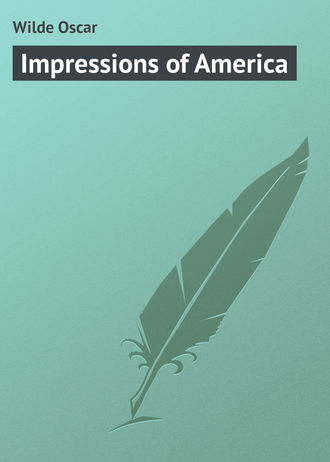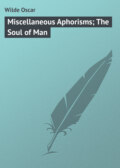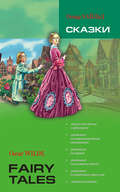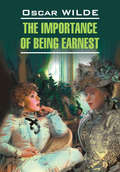
Оскар Уайльд
Impressions of America
The British “gamin” has not made much progress in this respect during the last twenty years!
His lectures on “Dress,” with the newspaper correspondence which they evoked, including some of Oscar Wilde’s replies in his most characteristic vein, must be reserved for a future volume.
STUART MASON.Oxford, January 1906.
IMPRESSIONS OF AMERICA
I fear I cannot picture America as altogether an Elysium – perhaps, from the ordinary standpoint I know but little about the country. I cannot give its latitude or longitude; I cannot compute the value of its dry goods, and I have no very close acquaintance with its politics. These are matters which may not interest you, and they certainly are not interesting to me.
The first thing that struck me on landing in America was that if the Americans are not the most well-dressed people in the world, they are the most comfortably dressed. Men are seen there with the dreadful chimney-pot hat, but there are very few hatless men; men wear the shocking swallow-tail coat, but few are to be seen with no coat at all. There is an air of comfort in the appearance of the people which is a marked contrast to that seen in this country, where, too often, people are seen in close contact with rags.
The next thing particularly noticeable is that everybody seems in a hurry to catch a train. This is a state of things which is not favourable to poetry or romance. Had Romeo or Juliet been in a constant state of anxiety about trains, or had their minds been agitated by the question of return-tickets, Shakespeare could not have given us those lovely balcony scenes which are so full of poetry and pathos.
America is the noisiest country that ever existed. One is waked up in the morning, not by the singing of the nightingale, but by the steam whistle. It is surprising that the sound practical sense of the Americans does not reduce this intolerable noise. All Art depends upon exquisite and delicate sensibility, and such continual turmoil must ultimately be destructive of the musical faculty.
There is not so much beauty to be found in American cities as in Oxford, Cambridge, Salisbury or Winchester, where are lovely relics of a beautiful age; but still there is a good deal of beauty to be seen in them now and then, but only where the American has not attempted to create it. Where the Americans have attempted to produce beauty they have signally failed. A remarkable characteristic of the Americans is the manner in which they have applied science to modern life.
This is apparent in the most cursory stroll through New York. In England an inventor is regarded almost as a crazy man, and in too many instances invention ends in disappointment and poverty. In America an inventor is honoured, help is forthcoming, and the exercise of ingenuity, the application of science to the work of man, is there the shortest road to wealth. There is no country in the world where machinery is so lovely as in America.
I have always wished to believe that the line of strength and the line of beauty are one. That wish was realised when I contemplated American machinery. It was not until I had seen the water-works at Chicago that I realised the wonders of machinery; the rise and fall of the steel rods, the symmetrical motion of the great wheels is the most beautifully rhythmic thing I have ever seen.3 One is impressed in America, but not favourably impressed, by the inordinate size of everything. The country seems to try to bully one into a belief in its power by its impressive bigness.
I was disappointed with Niagara – most people must be disappointed with Niagara. Every American bride is taken there, and the sight of the stupendous waterfall must be one of the earliest, if not the keenest, disappointments in American married life. One sees it under bad conditions, very far away, the point of view not showing the splendour of the water. To appreciate it really one has to see it from underneath the fall, and to do that it is necessary to be dressed in a yellow oil-skin, which is as ugly as a mackintosh – and I hope none of you ever wears one. It is a consolation to know, however, that such an artist as Madame Bernhardt has not only worn that yellow, ugly dress, but has been photographed in it.
Perhaps the most beautiful part of America is the West, to reach which, however, involves a journey by rail of six days, racing along tied to an ugly tin-kettle of a steam engine. I found but poor consolation for this journey in the fact that the boys who infest the cars and sell everything that one can eat – or should not eat – were selling editions of my poems vilely printed on a kind of grey blotting paper, for the low price of ten cents.4 Calling these boys on one side I told them that though poets like to be popular they desire to be paid, and selling editions of my poems without giving me a profit is dealing a blow at literature which must have a disastrous effect on poetical aspirants. The invariable reply that they made was that they themselves made a profit out of the transaction and that was all they cared about.







